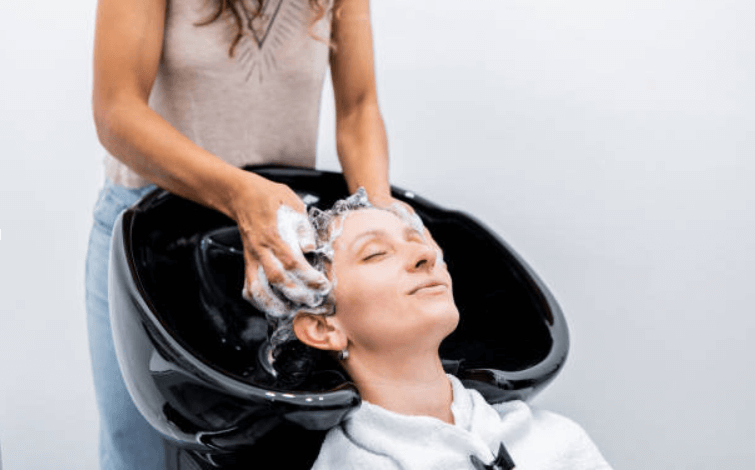Can Overusing Shampoo and Conditioner Harm Your Hair?

Maintaining a healthy hair care routine often involves regular washing with shampoo and conditioning with conditioner. While these products are essential for clean and well-maintained hair, overusing them can potentially lead to negative effects. Understanding the balance between proper usage and overuse is crucial to avoid damaging your hair. Here’s an in-depth look at how overusing shampoo and conditioner can harm your hair and tips for finding the right balance.
How Overusing Shampoo Can Harm Your Hair
Shampoo is designed to cleanse the scalp and hair by removing excess oils, dirt, and product buildup. However, using shampoo too frequently can strip the hair of its natural oils. These oils are essential for keeping the hair moisturized and protected. When shampoo is overused, especially if it contains harsh ingredients, it can lead to several issues:
See also: Home Controller Etiquette: Simple Tips for a Happy Home
1. Dryness and Brittleness
One of the primary consequences of overusing shampoo is dryness. Shampoo, particularly those with sulfates, can be quite effective at removing oil, but in the process, it can also strip away the hair’s natural moisture. This can leave the hair feeling dry, brittle, and more prone to breakage. Over time, this can compromise the overall health of your hair.
2. Scalp Irritation
Frequent shampooing can also irritate the scalp. The scalp’s natural oils serve as a protective barrier, and removing them too often can lead to dryness, itching, and even flakiness. This irritation can sometimes result in conditions such as dandruff or eczema. A balanced approach to shampooing is important to maintain a healthy scalp environment.
3. Disruption of the Hair’s Natural Oil Balance
The scalp produces natural oils that help to condition and protect the hair. Overusing shampoo can disrupt this balance, leading to an overproduction of oil as the scalp tries to compensate for the lost moisture. This can result in greasy hair and a cycle of excessive washing and oil production that is difficult to break.
How Overusing Conditioner Can Harm Your Hair
Conditioner is intended to provide moisture, detangle, and smooth the hair. While it’s crucial for maintaining hair health, overusing conditioner can also have adverse effects:
1. Product Build-Up
Using too much conditioner can lead to product build-up on the hair and scalp. This build-up can weigh down the hair, making it look limp and greasy. It can also make it more difficult for other hair care products to penetrate effectively. Regularly clarifying or deep-cleaning the hair to remove build-up is essential for maintaining healthy hair.
2. Scalp Issues
Conditioner, if not thoroughly rinsed out, can cause scalp issues. Residual conditioner on the scalp can clog hair follicles, leading to potential problems such as folliculitis, which is an inflammation of the hair follicles. This can result in scalp discomfort and potentially hinder healthy hair growth.
3. Altered Hair Texture
Overusing conditioner can sometimes alter the texture of your hair. While conditioner is meant to smooth and detangle, excessive use can make hair feel overly soft and weighed down. This can impact the natural volume and body of the hair, making it appear flat or lifeless.
Finding the Right Balance
To avoid the potential negative effects of overusing shampoo and conditioner, it’s important to find a balanced routine that suits your hair type and needs. Here are some tips for achieving that balance:
1. Adjust Frequency Based on Hair Type
Consider your hair type when determining how often to use shampoo and conditioner. For example, people with oily hair may need to shampoo more frequently than those with dry or curly hair. Conversely, individuals with dry or sensitive scalps should limit shampooing to avoid excessive dryness.
2. Choose the Right Products
Select shampoos and conditioners that are appropriate for your hair type. Look for sulfate-free shampoos if you have dry or damaged hair, and choose conditioners that offer hydration without being overly heavy. Products with natural or gentle ingredients are often less likely to cause issues when used regularly.
3. Use the Right Amount
Using an appropriate amount of shampoo and conditioner is crucial. For shampoo, a small amount (about the size of a quarter) is generally sufficient for most hair types. Similarly, apply conditioner sparingly, focusing on the ends of your hair rather than the roots to avoid build-up.
4. Incorporate Deep Conditioning and Clarifying Treatments
Occasionally, incorporate deep conditioning treatments to provide extra moisture and nourishment. Additionally, using a clarifying shampoo once in a while can help to remove build-up from conditioners and other products, keeping your hair clean and fresh.
5. Listen to Your Hair
Pay attention to how your hair and scalp respond to your current routine. If you notice signs of dryness, irritation, or build-up, it may be time to adjust the frequency or amount of shampoo and conditioner you use.
Wrap Up
While shampoo and conditioner are essential for maintaining clean and healthy hair, overusing these products can lead to dryness, irritation, and product build-up. By finding the right balance and choosing appropriate products, you can avoid the potential pitfalls of overuse and keep your hair looking and feeling its best.

